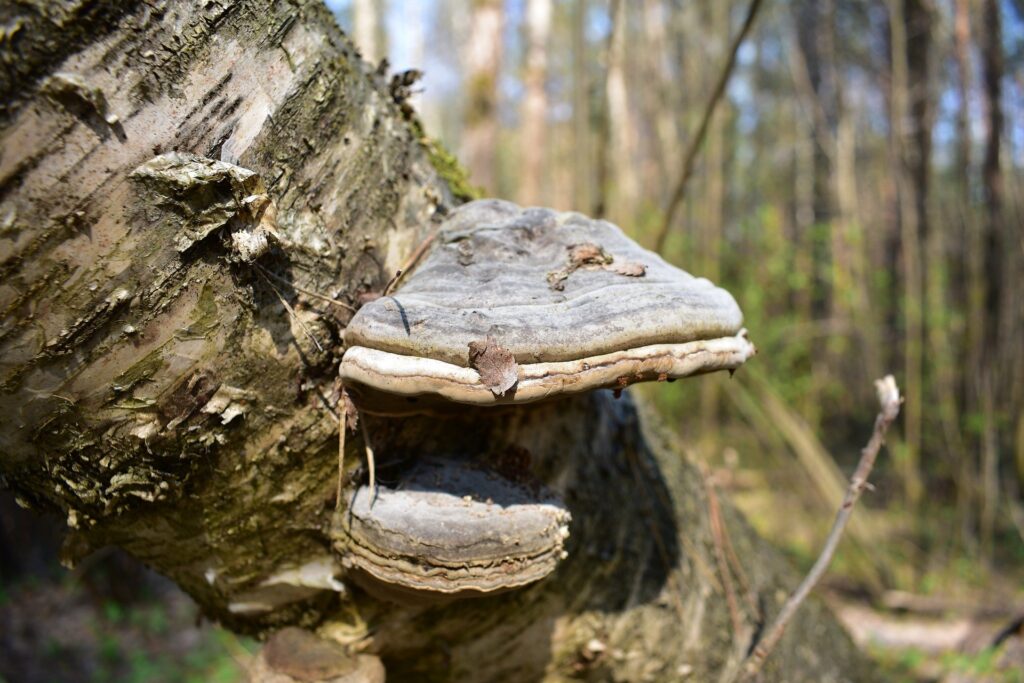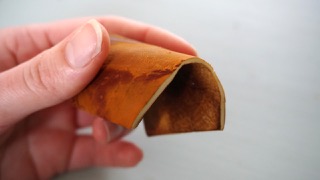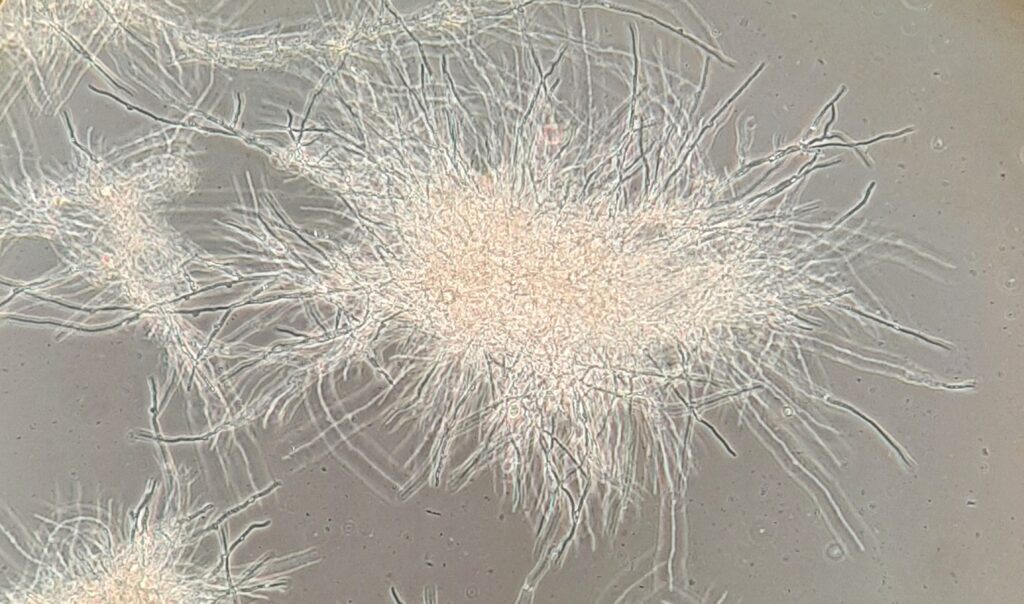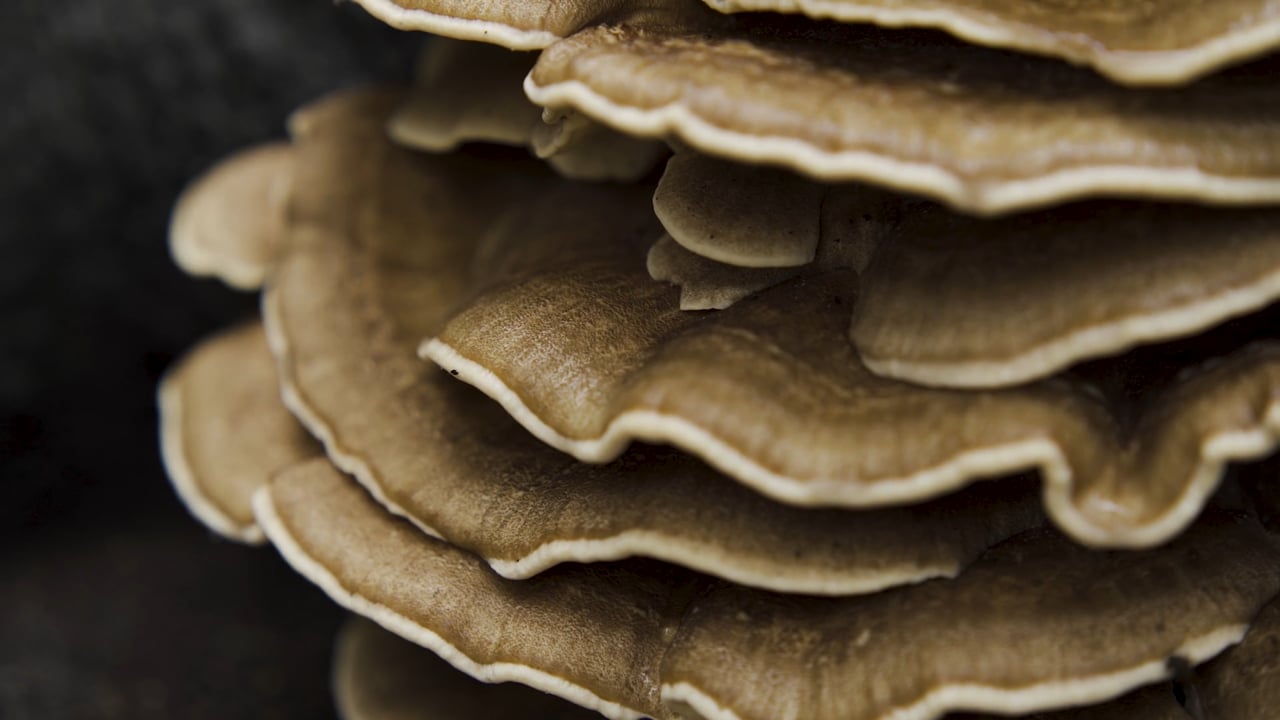The textile industry is the second-most polluting industry in the world. Fast fashion dictates year-round high demand – at the lowest possible prices. Creating new garments requires high amounts of water, pesticides and land and comes with high carbon emissions. Leather production is a notoriously toxic process and polyester textiles give off microplastics that wind up in the oceans. Despite the high impact of textile manufacture, it’s often the case that new clothes are hardly worn and quickly end up in landfills where they are toxic to the environment. This linear process of the textile industry is damaging to the planet and is in desperate need of a reform.
At Mylium, we create quality fabrics that are vegan and bio-based. The fabrics are made from mycelium, which is the root system of mushrooms. A mycelium material can be made by inoculating fungi on a substrate such as straw or other agricultural waste. The fungus will form a soft, light and firm material. In turn, this results in a white material with a luxurious feel.
Mycelium is a unique material, since it is grown instead of fabricated. Therefore, it is completely natural, bio-based and biodegradable. This allows Mylium to make circular fabrics. At the end of its life cycle, a garment can be allowed to decompose and brought back into nature in a sustainable way. In addition, it is vegan and therefore completely cruelty-free.
Mylium involves the design of material that is ‘alive’ during its formation process and thereby, it has a will of its own. The role of designers is to co-create with nature to produce optimal fabrics with these fungi. The designer has a relationship with the material as it were. In turn, the fabric can be formed into the desired shape of fashion designers, who play a role in the creation of these fabrics. Ultimately, the aim is to redefine the way consumers view their garments so that they too have a new kind of relationship with their products. This awareness is essential in the move towards circular and sustainable fabrics.




